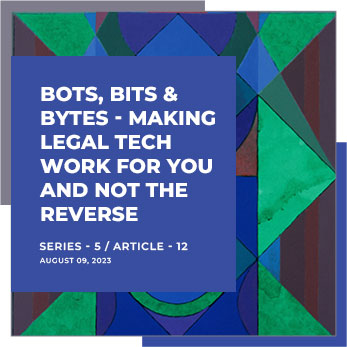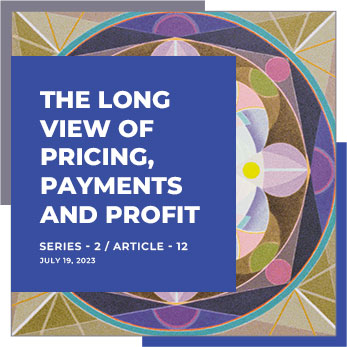“We are the only branch of the regulated legal professions that have a detailed knowledge of and expertise in the field of legal costs. Whilst our services are predominantly sought by firms of solicitors, we are also regularly instructed by members of the public including businesses.”
Wouldn’t it be great if every single hour a lawyer spent in the office or by remote work was a billable hour? Not only do lawyers, on average, work more than 40 hours per week, but at Big Law firms, the work week can even stretch up to 80 hours a week.
But alas, not all of that time is billable, and rules apply as to how many of those hours can be properly—and ethically— billed to the client. We will examine what type of activity can be legitimately billed to the client versus what tasks must be chalked up to the lawyer’s or firm’s own time.
Which is Which?
Simply put, billable hours are the hours actually spent working on your client’s projects. This includes such items as all activity related to the client after signing the contract, translation services, and communications with the client—both telephone calls and emails— directly connected to the client’s case.
Non-billable hours are those spent on just about all other matters, including administrative tasks, pre-retainer meeting preparation, drafting the retainer letter, invoicing, continuing legal education (even if it assists you in representing the client’s particular legal issue), time spent on compliance issues, and similar expenditures of time not directly related to legal services provided to your client. While it may be tempting to add on some amount of lunchtime or coffee break time when you were thinking about your client’s case or perhaps even jotting down a note or two, such billing would be inappropriate. However, if you arrange a business lunch with your client and the client knows upfront that it is to discuss matters pertaining to the case, then that time may be billed accordingly.
Tracking Both
The above description may lead the practitioner to believe that, therefore, only billable hours need to be accounted for (tracked) and that non-billable hours are irrelevant in terms of your hours tracking system. However, that presumption would be incorrect. While the need to accurately track billable hours for revenue purposes is obvious, your firm will also want you to track your hours worked versus hours billed in order to evaluate your productivity and billable hours ratio. Also, should a question arise in the future regarding your attention to firm matters—be they client-billable, administrative, or otherwise—your tracking of all hours worked will be of immense value to you.
Interestingly, experts caution that non-billable time should not be viewed as wasted, unproductive time to be eliminated as much as possible but rather as productive time that is valuable in terms of the growth of your practice, planning essential marketing, updating a website, and time expended to seize unexpected opportunities.
Time Analytics
Most firms have in place systems to gauge how much time is spent on a case regardless of how much of that time can actually be billed to the client. Internal time analytics need to be accounted for in order to determine the total cost of a case, as well as for reimbursement for such things as commute time (where that is a perk with the firm) and for calculating time-based bonuses. Another consideration in recording all time worked is in order to utilize that data as a factor in promoting yourself from associate to partner when partnership evaluation season begins.
Some Red Flags for Non-billables
Certain billing items can raise red flags either in your accounting department, from your partner-mentor, or in the worst-case scenario, from your client. Here are some billing practices to watch out for:
- Research: Research that is conducted solely in pursuit of benefitting the client, and is case-focused, should be well documented with supporting information and materials. Documentation will distinguish client research from routine research work that does not specifically contribute to the development of a case. No one wants the billing department to come knocking on your office door asking you to justify an excessive amount of time spent on research for a case, and neither do you want the client to object over sticker shock with allegations of time padding. Today, most office time tracking systems can be integrated with research tools to establish the nexus between the research and the client.
- How many attorneys: If an attorney appearance, such as at a court hearing, witness deposition, real estate closing, etcetera, customarily requires the presence of one attorney, yet two or more appear and subsequently bill for the time of multiple attorneys, unless the firm can prove the necessity of more than one attorney appearing, the non-validated time will be non-billable, or, at the very least, reduced.
- Travel time: Short, local travel distances may very well be considered an office expense rather than a time expenditure that can be billed to the client, but if the client agrees to local travel expenses, the same should be billed at a rate significantly below the attorney’s hourly rate. However, in all cases, travel time that will be charged to the client should be set out upfront in the client retainer letter. In particular, extraordinary expenses such as airfare and hotel stays should be approved in advance by the client.
- Intra-firm communications: Communication conducted within the firm should not be charged to the client unless consultation with a colleague is essential to the case and the communications of this type have been cleared with the client. Many times, clients agree to intra-office communication time as conducted by senior partners.
Excessive Costs Experts
In the U.K., there exists a specialty law practice known as Costs Lawyers, whose job it is to draft schedules of legal costs, identify points of dispute and draft replies to claims for costs, assist in the preparation of costs budgets and advise on costs budgets presented by an opposing party, and to advise on retainers and fee arrangements between clients and their legal advisors. While no such specialty exists before the U.S. bar, legal fee disputes obviously arise and are most often brought before the court in the settlement of major cases, while smaller private client complaints are typically arbitrated by the state bar.
One such case involving a legal fee dispute arose in the course of settling the largest consumer case in Michigan history. A group of objectors to a $626 million fee awarded in partial settlement of lawsuits over the contamination of drinking water in Flint, Michigan, lost in their attempt to reopen discovery on billing and costs related to the litigation. The U.S. Court of Appeals for the Sixth Circuit ruled that objectors to the billing were not entitled to detailed discovery of billing and cost records and assertions that those records would have shown excessive billing or revealed the inclusion of time not performed for the common benefit were entirely speculative.
In sum, both billable and non-billable hours are both investments for the lawyer, the former realizing immediate financial gain, and the latter—when properly utilized—an investment in the future of the firm and the practice.
Executive Summary
The Issue
Distinguishing between billable versus non-billable time.
The Gravamen
Non-billable time should also be viewed as productive time due to its importance to firm administration, marketing, and overall growth.
The Path Forward
Proper billable hours invoicing to the client in accordance with pre-agreed terms will save unpleasantness down the road.
Action Items
Retainer Agreement:
Your retainer (or engagement) letter to your client should spell out clearly not only what your hourly rate will be but also what activities will be considered as billable time.
Travel and Expenses:
If the client’s case is expected to require travel, then such time should be identified as billable along with associated travel expenses.
Tracking Non-billable Time:
Regard even non-billable time as productive time and use it productively while tracking it for both case-cost analysis as well as for lawyer development and advancement purposes.
Bring On Technology:
There is no getting around the fact that lawyers are hostages to timesheets, but by employing the proper technology, that unpleasant task of time tracking—both billable and non-billable—can be made much easier and more profitable.
Further Readings
- https://www.altfeeco.com/resources/billable-hours-law-firm
- https://timeanalyticssoftware.com/billable-vs-non-billable-hours/
- https://tipsforlawyers.com/no-time-like-billable-time
- https://www.linkedin.com/pulse/5-reasons-track-non-billable-time-your-law-firm-larry-bebb/
- https://www.practicepanther.com/blog/the-comprehensive-guide-to-legal-billing/







